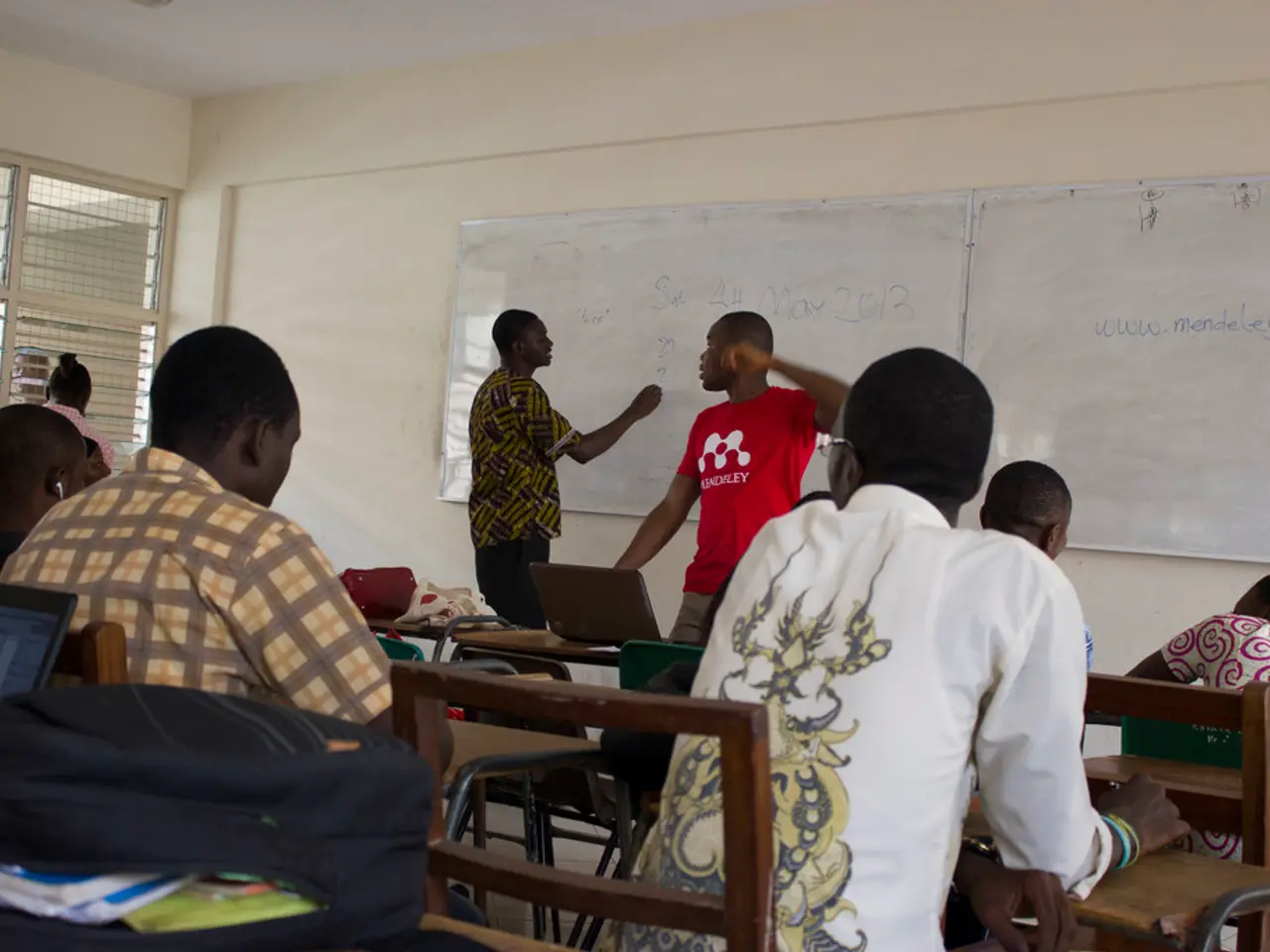Strategies for Instructing IB Classes in 2025: Comprehensive Guide for Educators
In the realm of education, the International Baccalaureate (IB) stands as a beacon of thoughtful citizenship and holistic learning. This teaching philosophy, embraced by schools worldwide, equips students with the skills they need to engage critically with the world and foster a sense of global mindedness.
At the heart of IB teaching lies a student-centered approach, with a focus on inquiry-based learning, conceptual understanding, global contexts, collaborative learning, and reflective practice.
Inquiry-Based Learning encourages a student-led approach, where questions drive exploration and learning, promoting curiosity and investigation rather than rote memorization. This method empowers students to take charge of their learning journey, fostering a love for discovery and a deep understanding of the subjects at hand.
The IB emphasizes big ideas over isolated facts, promoting interdisciplinary learning where connections between subjects enhance comprehension and application of knowledge in real-world contexts. This approach encourages students to think beyond the confines of individual subjects, fostering a broader, more comprehensive understanding of the world.
Global contexts are integral to IB teaching, with students taught to appreciate cultural diversity and global issues. This emphasis on international mindedness and responsible citizenship equips students with the skills they need to navigate and contribute positively to an increasingly interconnected world.
Collaborative learning is another cornerstone of IB teaching. Group work and peer learning are integral, helping students develop communication and teamwork skills through shared tasks and mutual assessments. These collaborative experiences foster a sense of community and encourage students to learn from one another, enriching their educational journey.
Reflective practice is also a key component of IB teaching. Students are guided to reflect on their learning processes, supporting personal growth and deeper understanding of their knowledge acquisition. This reflective practice encourages students to take ownership of their learning, fostering a sense of self-awareness and responsibility.
Supporting these strategies are the IB's Approaches to Learning (ATL) skills, which include thinking, communication, social, self-management, and research skills. These skills are systematically integrated across curricula and strategic school planning, ensuring students develop transferable skills essential for lifelong learning and effective collaboration.
Effective IB teaching often utilizes a variety of resources, including the IB curriculum frameworks and guides, formative and summative assessment tools, collaborative platforms and peer assessment systems, and global context materials. These resources facilitate the implementation of IB strategies and support students in their journey towards becoming global citizens.
In sum, effective IB teaching balances rigorous content with inquiry, conceptual thinking, and global perspectives, supported by structured skill development and collaborative resources. With its focus on student-led inquiry, interdisciplinary learning, global-mindedness, and reflective practice, the International Baccalaureate stands as a powerful tool in the quest to empower students to become thoughtful citizens of the world.
The International Baccalaureate (IB) emphasizes education-and-self-development through a curriculum alignment that focuses on learning via inquiry-based methods, fostering global mindedness, and encouraging a student-led approach. This education-and-self-development model equips students with the skills to navigate real-world situations by promoting interdisciplinary learning, collaborative learning, reflective practice, and the development of Approaches to Learning (ATL) skills.




